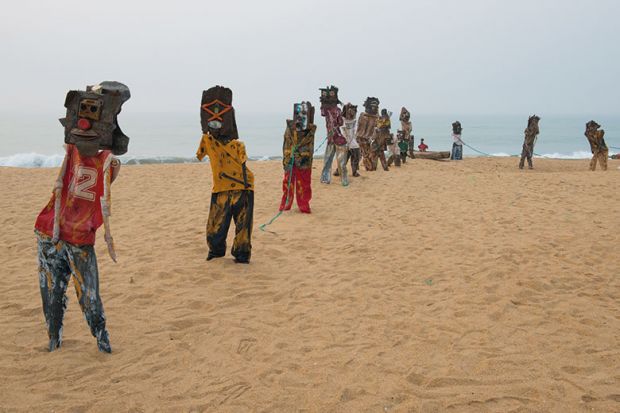Toby Green opens his remarkable book with a quotation from the 19th-century Sultan of Sokoto: “I have not stolen my fire from anyone’s lamp.” He is justified. This original and thoughtful work is based on detailed first-hand knowledge of and collaboration with the cultures and peoples it depicts. Green uses a combination of documentary sources, both primary and secondary (many previously unexplored by European scholars), material culture and oral sources, including both extensive local collections and literature such as the Sunjata epic, skilfully woven into a persuasive and insightful narrative.
A long and unfortunate tradition in African studies, still only too pervasive, is to see Africa (generalised) as a continent of nothingness: of passive and unchanging “ahistoricity” until the advent of movers and shakers from Europe. No one reading the detail here – and spectacular it often is – could again fall into that trap.
Green depicts a rich, complex and sophisticated region. In his colourful and fully evidenced pages, we meet the special circumstances, the ups and downs, the choices and the miseries of West Africa. He presents all this, rightly, as part of world history, something that “defies generalisation yet has a universal importance”. There is the long history of reciprocity with Europe; the rise and fall of empires; internationally valued gold; art and music; and complex urban cultures such as Timbuktu, in many ways the harbingers of what we now term “modernity”. From the 13th century onwards, the peoples and rulers of West Africa were active participants in shaping the modern world.
Far from seeing Africans and their history as passively shaped by external forces – although these are fully recognised – Green focuses on agency. He speaks not of “slaves” but of “enslaved persons”: individuals who happened to have been captured but who had not for that reason ceased to act as individuals. They brought their music and their ideas with them, and played multiple – active – roles. Indeed the agency of the enslaved in both Africa and North America eventually proved to be instrumental in overthrowing the Atlantic slave trade system.
I had expected a book of this weight and length to rely on theory and academic jargon to cement the contents or to be crammed with dry and boring detail. I was wrong. Each page, even when the horrors are there too (Green doesn’t shy away from them), is full of interest and humanity. The detail, too long and complicated to delineate here, is fascinating. I urge you to read it for yourself.
For all its impressive scholarship A Fistful of Shells is notably readable, supported by great illustrations and a stunning cover – and, in the best sense, personal. Given this, a shorter version for general readers and young people would be a grand contribution for the future, providing a much-needed new perspective on the world.
Normally suspicious of publishers’ blurbs, I have to say that this really is a “groundbreaking” work. Although Green is generous in acknowledging the contributions of others (an immense list), his lamp is most certainly his own, stolen from no others.
Ruth Finnegan is emeritus professor of social sciences at The Open University and a fellow of the British Academy. Her most recent book is Time for the World to Learn from Africa (2019).
A Fistful of Shells: West Africa from the Rise of the Slave Trade to the Age of Revolution
By Toby Green
Allen Lane, 656pp, £30.00
ISBN 9780241003176
Published 31 January 2019
后记
Print headline: Active in shaping today’s world

